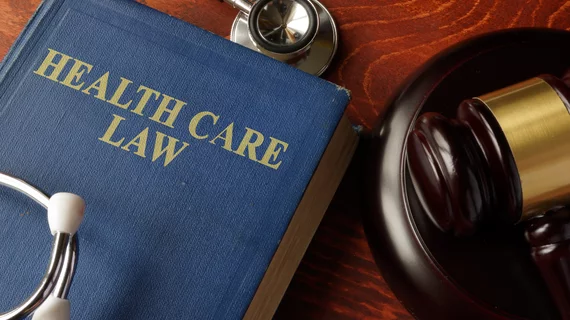Radiologists who follow AI-based recommendations may be safer from malpractice liability than they think
Doctors who opt to abide by artificial intelligence-based guidance for nonstandard treatments are likely safer from a medical malpractice lawsuit than many may think.
That’s according to legal experts at Georgetown University and ETH Zurich’s Center for Law & Economics who recently published their experimental study in the Journal of Nuclear Medicine.
They canvased a nationally representative sample of 2,000 U.S. adults, asking them to analyze one of four situations in which a physician used AI to make a treatment decision. Each instance included either AI-recommended standard or nonstandard care and whether the provider chose to accept or reject that guidance.
In all situations, the physician’s decision led to patient harm, and participants were asked to decide whether the provider was liable.
Based on the results, physicians who follow advice from AI to go with standard care can reduce their risk of liability, rather than rejecting it. On the flip side, physicians aren’t shielded if they bypass AI-recommended nonstandard care in favor of a standard approach.
Kevin Tobia, JD, of Georgetown University Law Center, and colleagues called this the “follow both” model of liability judgement. Essentially the decision, they said, boils down to whether the treatment provided was standard and whether the physician followed the AI recommendation.
Many legal scholars have argued that tort law poses a significant barrier to wider AI adoption, Tobia and colleagues noted, but their findings actually suggest otherwise.
“These results provide guidance to physicians who seek to reduce liability, as well as a response to recent concerns that the risk of liability in tort law may slow the use of AI in precision medicine,” the authors wrote. “Contrary to the predictions of those legal theories, the experiments suggest that the view of the jury pool is surprisingly favorable to the use of AI in precision medicine.”
A 2019 report from Medscape ranked radiology sixth among the top 10 specialties most likely to be sued, with most cases stemming from a failed or delayed diagnosis. Meanwhile, the American Journal of Roentgenology published five tips for minimizing malpractice risk in the specialty.

